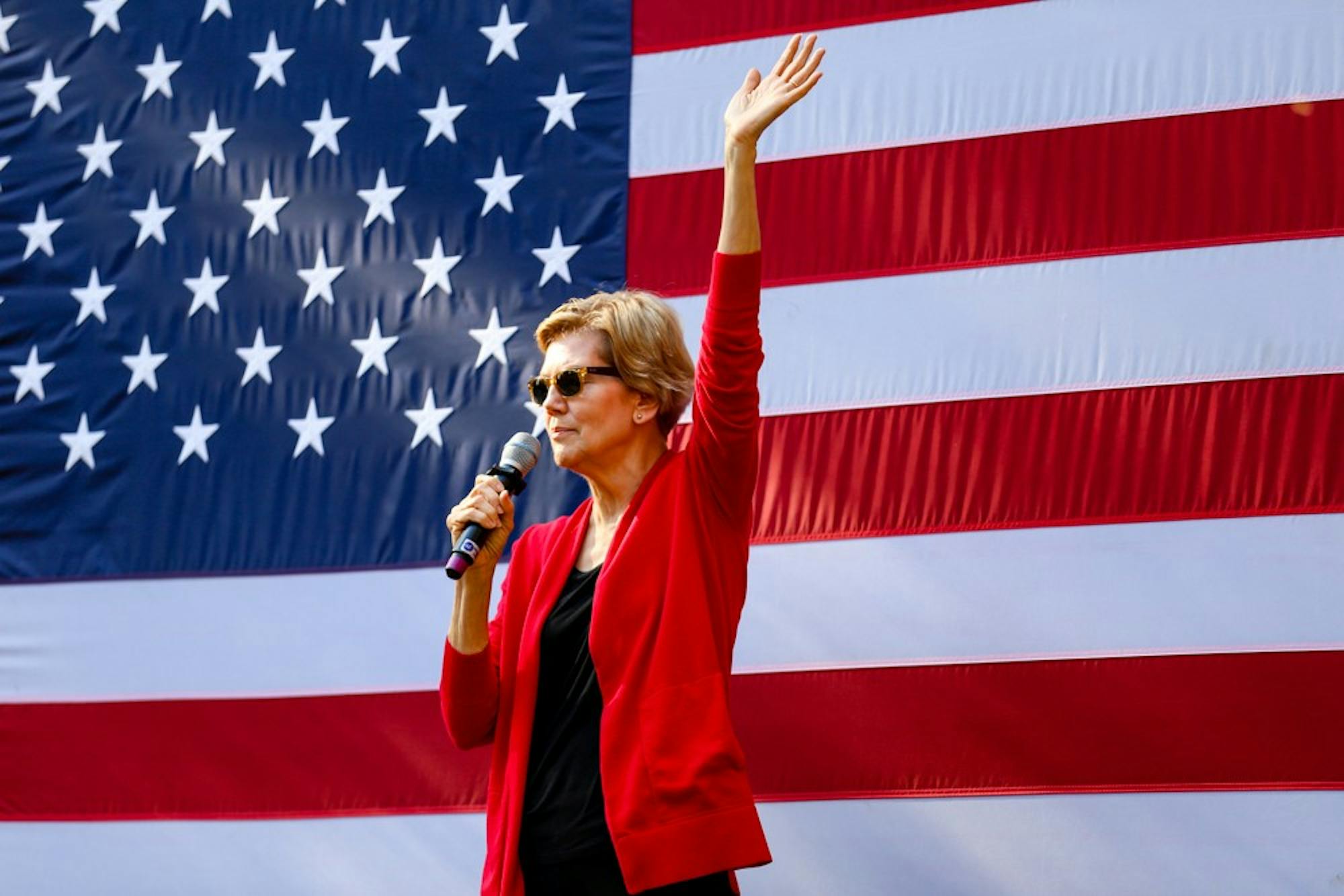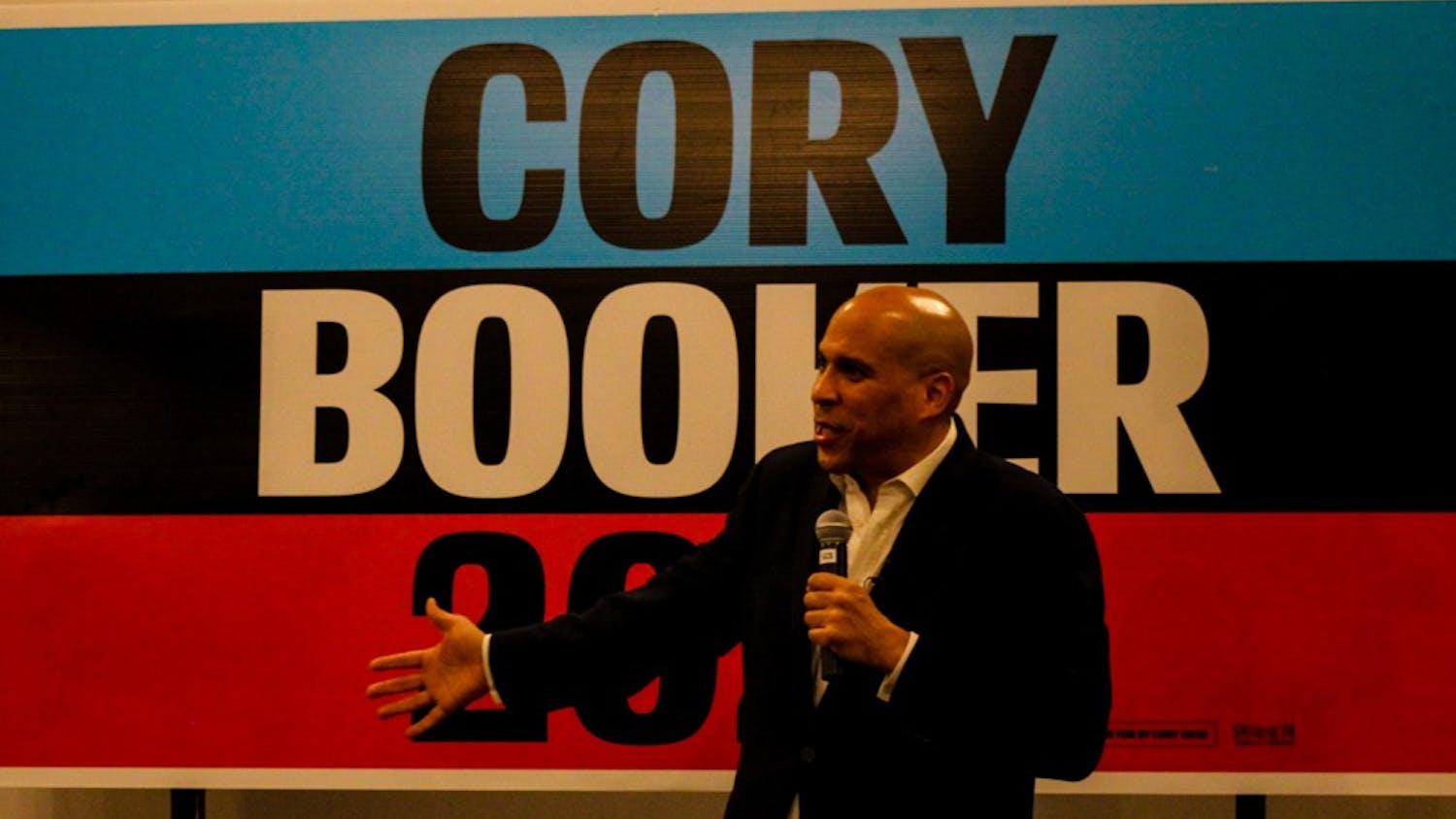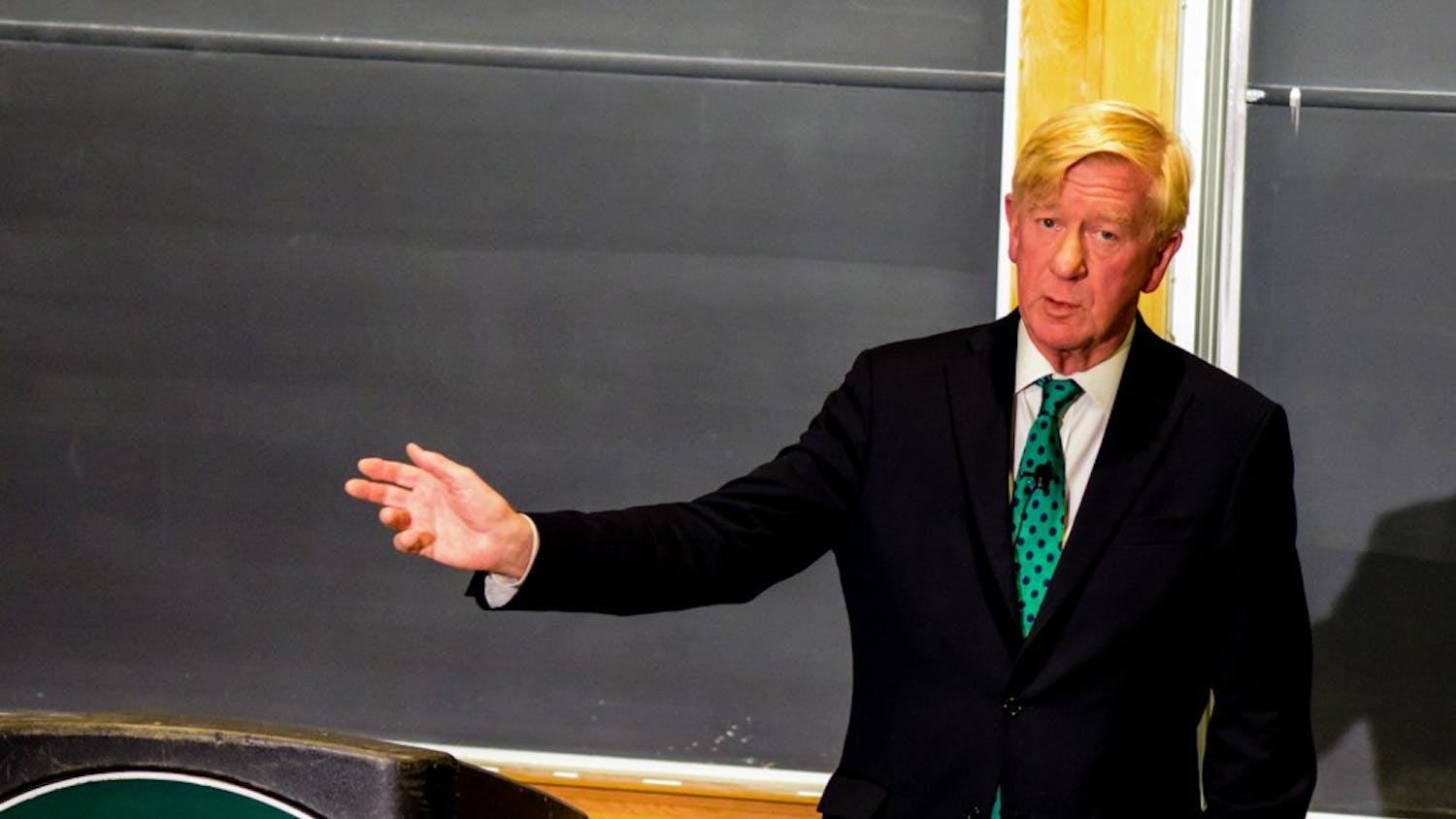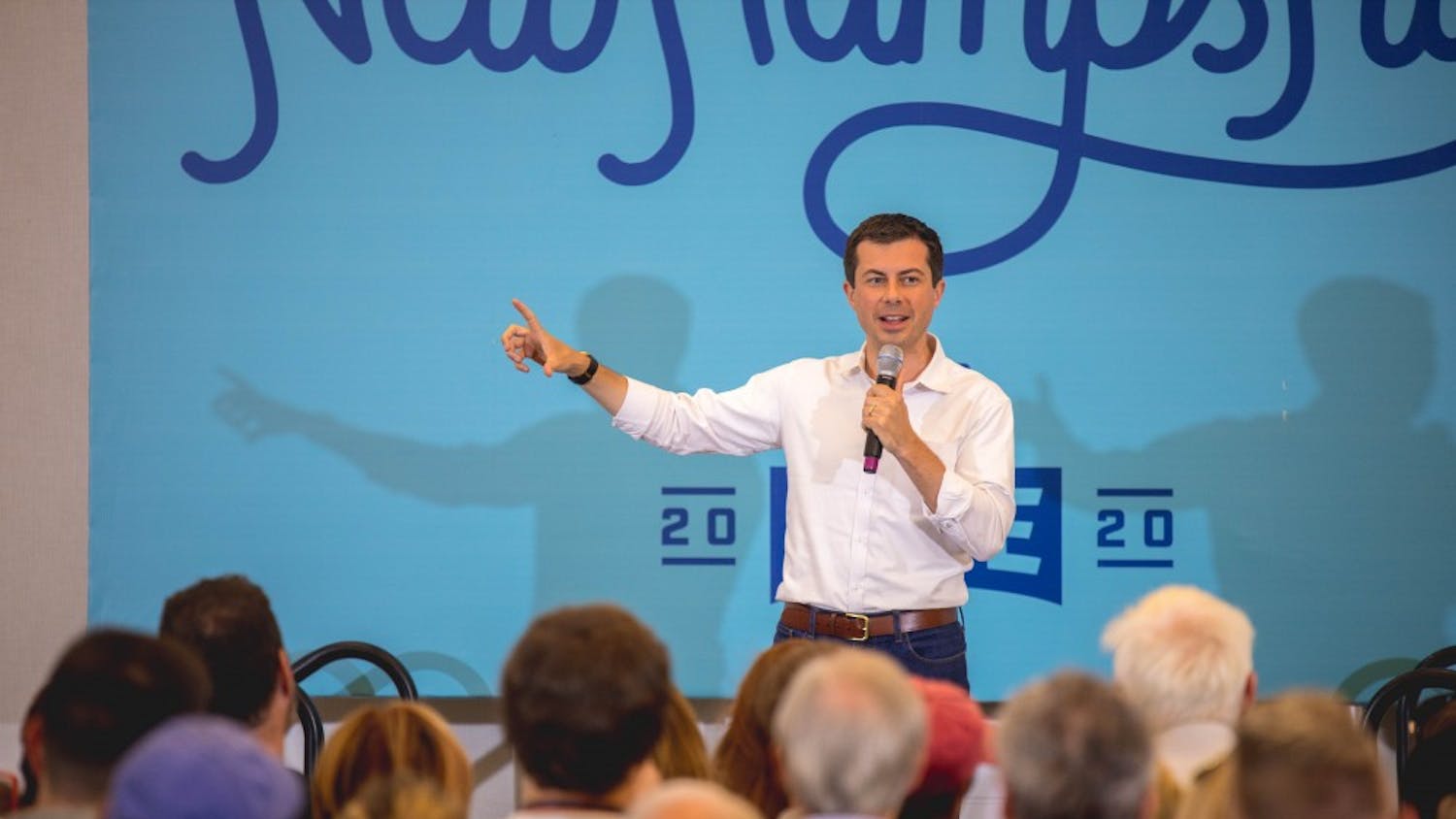Framed by the fall foliage of the Bema, Democratic presidential candidate Elizabeth Warren spoke to a crowd of approximately 1,100 students, professors and community members Thursday afternoon. Warren, a U.S. senator from Massachusetts, came dressed in a bright red cardigan to signify her support for public education — and brought an air of enthusiasm to match.
When Warren last visited Dartmouth in April, she was in fourth place in New Hampshire’s crucial first-in-the-nation primary, according to polls at the time. However, after a slow, steady rise in the crowded field over the summer, she leads former vice president Joe Biden by 3.3 percentage points in the RealClearPolitics average of polls in New Hampshire, though she still trails him nationally by 5.4 points.
Warren opened the event with several personal anecdotes detailing her personal life and upbringing, a consistent theme throughout her rally. She described her formative years as a highly difficult period — her father worked multiple jobs and later suffered a major heart attack, making him unable to work for an extended period of time.
Warren then stressed the importance of the minimum wage in rescuing her family from the potential loss of their home.
The senator also described her tumultuous younger years — dropping out of college, getting married and working a minimum wage job.
Warren then related her personal story — one of struggling to achieve the American Dream — to large swathes of middle-class and minority Americans who she said suffer from the same problems. Warren attributed this inequality to a single problematic factor: leadership of the country.
“It was only years later that I came to understand that that same story is a story about government,” Warren said.
Warren repeatedly expressed her concerns regarding middle-class American families.
“I don’t want a government that works for multinational corporations — I want a government that works for families,” she added.
On numerous occasions, Warren expressed her discontent with monetary influence in Washington, commitment to breaking up big multinational corporations, and her desire to enforce antitrust laws and end the revolving door between lobbyists and politicians.
Warren described several methods that she would utilize to combat the power of big business. First, she emphasized promoting union membership and giving employees and customers more influence. Warren focused next on one of the focal points of her campaign: a wealth tax that would tax two cents on each dollar of incomes over $50 million. Warren claimed that with this tax on the richest one percent of Americans, the government could fund universal childcare and universal pre-K, raise the wages of childcare workers, fund education for children with disabilities and pay for college and student debt. She described her tax plan as “pitching in two cents so everyone else can make it.”
Warren then spoke on the importance of protecting American democracy.
“We need a constitutional amendment to protect the right of every American citizen to vote,” she said, making a point to denounce partisan gerrymandering and laws that she said suppress voter turnout and expressing a desire to end both.
She added that she would also work to repeal the controversial 2010 Citizens United v. Federal Election Commission Supreme Court decision as president.
In a question-and-answer session following her speech, Warren addressed issues of gun violence, climate change and rule of law. The senator detailed her plan to reduce gun violence by 80 percent as well as her multi-pronged plan to reduce U.S. carbon emissions by 70 percent by the year 2035. Warren also expressed discontent with what she described as the Trump administration’s lack of adherence to “rule of law.”
“Dream big, fight hard, let’s win,” Warren appealed to the audience in her closing statement.
Following the event, Kenna Vansteyn ’21 expressed positive sentiments regarding Warren’s demeanor.
“I like how personable she is, but she is also brilliant,” Vansteyn said.
Latin American, Latino and Caribbean studies professor Andre Pagliarini also viewed the town hall positively, although he expressed concern about Warren’s lack of discussion of foreign policy.
“I’m pretty much on board with supporting her,” Pagliarini said. “The only thing I had hoped for is a little more discussion of foreign policy, particularly regarding Latin America, which is what I work on.”
Just the latest of recent 2020 candidate visits to Dartmouth, Warren’s event comes within weeks of speeches, rallies and town halls from candidates including U.S. senators Bernie Sanders (I-VT), Cory Booker (D-NJ), Michael Bennet (D-CO) and former Massachusetts governor Bill Weld, running in the Republican primary.
Afterward, Warren greeted a line of students and community members to take selfies.
“I’ll stay with you as long as you want and take selfies,” Warren said. “We will have some fun. Because that’s how it should be.”





